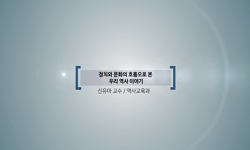본 연구는 한국 문화영화의 영화적, 공보(선전)도구적, 기록 사료적 특이성을 인식하고 이를 개념화하여, 1960년대 영화 장에 대한 통찰을 기반으로 가족-국가의 젠더화된 국민-동원 이데올로...
http://chineseinput.net/에서 pinyin(병음)방식으로 중국어를 변환할 수 있습니다.
변환된 중국어를 복사하여 사용하시면 됩니다.
- 中文 을 입력하시려면 zhongwen을 입력하시고 space를누르시면됩니다.
- 北京 을 입력하시려면 beijing을 입력하시고 space를 누르시면 됩니다.
1960년대 문화영화와 젠더, 그리고 가족-국가
한글로보기https://www.riss.kr/link?id=G3745252
- 저자
-
발행기관
-
-
발행연도
2015년
-
작성언어
Korean
-
주제어
가족-국가 ; Family-nation ; State-feminism ; The National Film Production Center in Korea ; Politic of culture ; Visual culture ; Gender ; Cine-feminism ; Après-girl ; Image of woman ; Representation of woman ; Madam Freedom ; Housewife ; Korean culture film(Kulturfilm) ; Korea ; 국가페미니즘 ; 국립영화제작소(國立映畵製作所) ; 문화 정치 ; 시각 문화 ; 젠더 ; 씨네페미니즘 ; 여성상 ; 여성 재현 ; 자유부인 ; 주부 ; 한국 문화영화 ; 한국 상업영화 ; 현모양처(賢母良妻) ; 1960년대 ; 4·19 ; 5·16
-
자료형태
한국연구재단(NRF)
-
0
상세조회 -
0
다운로드
부가정보
국문 초록 (Abstract)
본 연구는 한국 문화영화의 영화적, 공보(선전)도구적, 기록 사료적 특이성을 인식하고 이를 개념화하여, 1960년대 영화 장에 대한 통찰을 기반으로 가족-국가의 젠더화된 국민-동원 이데올로기를 초점에 두고 국립영화제작소의 문화영화(4·19와 5·16직후인 1960년대(1961~1967)에 제작된)를 고찰하고, 시각문화 구조와 작동방식을 밝히는 것을 목적으로 한다. 특히 이 연구에서는 이들 영화를 생산/소비하는 텍스트 내외부의 젠더 재현을 가족-국가의 상관성 속에서 분석하며 1960년대 한국 사회의 젠더구조의 청사진을 재구성하려 시도했다. 본 연구에서는 박정희 대통령이 통치하던 1960년대의 대한민국을 가족-국가로 지칭할 것인데, 이는 개발 국가로서 대한민국이 가족주의를 지배담론으로 한 유교적 부권주의를 근대적 국가주의로 전유해 가족과 국가의 발전주체로 여성을 동원하는 한편, 여성의 일을 희생과 헌신으로 개념화한 체제로 간주하는 것이다. 이에 본 연구는 1) 1960년대 문화영화에서 가족-국가의 이데올로기를 여성이 어떠한 방식으로 체현하도록 가시화되는지, 2) 여성의 자기 동원과 자아실현 모순이 사이의 갈등의 균열 지점이 혹여 대중영화를 통해 나타나는지를 동시에 고찰하면서, 3) 1960년대 가족-국가의 젠더화된 시각장과 문화정치를 통합적으로 조망한다.
다국어 초록 (Multilingual Abstract)
This study recognizes the cinematic, Public informative (propaganda) instrumental, and historical materialistic specificity of the Korea Culture Film and conceptualize it. It based on the insight into the 1960s Korean cinematic fields, then Family-Nat...
This study recognizes the cinematic, Public informative (propaganda) instrumental, and historical materialistic specificity of the Korea Culture Film and conceptualize it. It based on the insight into the 1960s Korean cinematic fields, then Family-Nation’s gendered mobilization of nation people ideology focus on Culture Film of The National Film Production Center in Korea - had produced the 1960s (1961-1967) after April 1960 and 5·16 Coup – investigated with and aims to reveal the structure and working methods of visual culture of that era. In particular, these films which produced/consumed interior and exterior of text with gender representation had family-correlated analysis and was trying to reconstruct the blueprint of the gender structure of the Korea Society the 1960s. In this study, the Republic of Korea in the 1960s was President Park Chung-hee ruled the country be referred to as the Family-Nation. Which developed countries as the Republic of Korea has a Familism as dominant discourse prior to the Confucian paternity attention to modern nationalism. Meanwhile to mobilize women to develop the subject of family and country, to be considered women’s work as a system conceptualized with a sacrifice and dedication. The purpose of this study are: 1) In the 1960s of Culture Film











